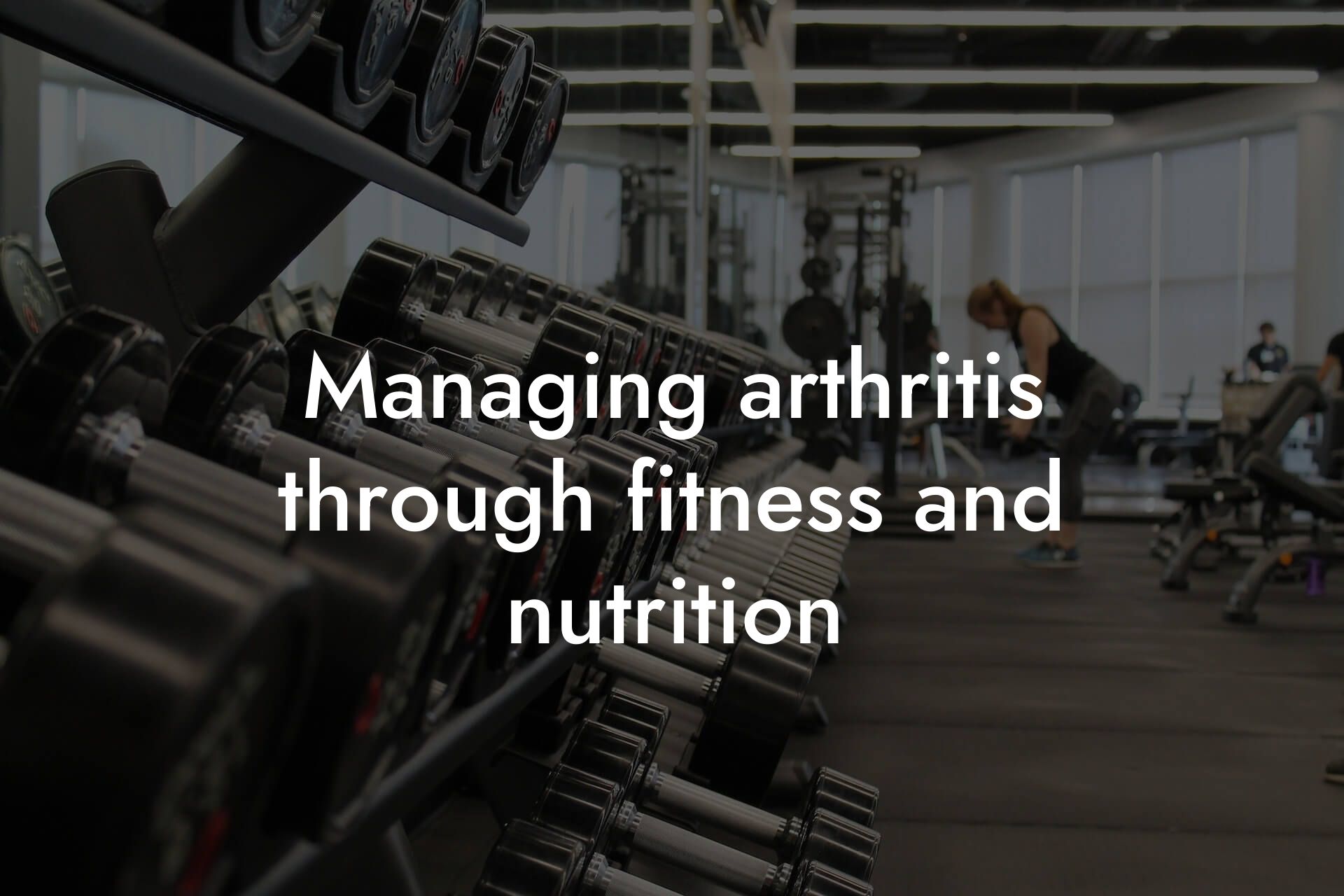As high-earning professionals, you understand the importance of maintaining a healthy lifestyle to perform at your best. One crucial aspect of overall health is managing cholesterol levels. Cholesterol is a silent killer, often showing no symptoms until it's too late. In this article, we'll delve into the world of cholesterol, exploring what it is, its impact on your body, and most importantly, how to manage it through diet and exercise.
Table of Contents
What is Cholesterol?
Cholesterol is a waxy, fat-like substance produced by the liver and found in every cell of the body. It plays a vital role in various bodily functions, such as:
• Producing hormones, like estrogen and testosterone
• Aiding in the digestion of fats
• Maintaining healthy cell membranes
However, excessive cholesterol levels can lead to serious health issues, including heart disease, stroke, and high blood pressure.
The Different Types of Cholesterol
There are two primary types of cholesterol: Low-Density Lipoprotein (LDL) and High-Density Lipoprotein (HDL). Understanding the difference between these two is crucial for effective cholesterol management:
• LDL (Bad) Cholesterol: Carries cholesterol from the liver to the cells, where it can accumulate and contribute to plaque buildup in the arteries, increasing the risk of heart disease.
• HDL (Good) Cholesterol: Transports excess cholesterol from the cells to the liver for excretion, helping to remove excess cholesterol from the bloodstream and reduce the risk of heart disease.
The Risks of High Cholesterol
High cholesterol levels can lead to a range of serious health complications, including:
• Heart Disease: Plaque buildup in the arteries can restrict blood flow, increasing the risk of heart attacks and strokes.
• High Blood Pressure: Excess cholesterol can damage blood vessels, leading to high blood pressure and further increasing the risk of heart disease.
• Stroke: Blockages in the blood vessels can cause a stroke, leading to brain damage and even death.
• Peripheral Artery Disease: Reduced blood flow to the legs and arms can cause pain, numbness, and weakness.
Dietary Changes to Manage Cholesterol
A well-balanced diet is essential for managing cholesterol levels. Focus on incorporating the following foods into your diet:
• Soluble Fiber-Rich Foods: Oats, barley, nuts, seeds, and fruits (especially apples, berries, and pears) can help lower LDL cholesterol.
• Plant-Based Protein Sources: Legumes, beans, and lentils are rich in protein, fiber, and potassium, making them an excellent choice for cholesterol management.
• Fatty Fish: Fatty fish like salmon, mackerel, and sardines are rich in omega-3 fatty acids, which can help reduce triglycerides and improve overall heart health.
• Avocados: Rich in healthy fats, avocados can help increase HDL cholesterol and reduce LDL cholesterol.
Avoid or limit the following foods to help manage cholesterol:
• Saturated and Trans Fats: Found in red meat, full-fat dairy products, and processed snacks, these fats can increase LDL cholesterol.
• Refined Carbohydrates: Foods high in sugar and refined carbohydrates, such as white bread and sugary drinks, can increase triglycerides and reduce HDL cholesterol.
The Role of Exercise in Cholesterol Management
Regular exercise can help improve cholesterol levels by:
• Increasing HDL Cholesterol: Aerobic exercises, such as running, cycling, and swimming, can help raise HDL cholesterol levels.
• Reducing Triglycerides: Exercise can help lower triglyceride levels, reducing the risk of heart disease.
• Improving Insulin Sensitivity: Regular physical activity can improve insulin sensitivity, reducing the risk of developing type 2 diabetes and related health issues.
Aim for at least 150 minutes of moderate-intensity aerobic exercise or 75 minutes of vigorous-intensity aerobic exercise per week. Additionally, incorporate strength training exercises into your routine to improve overall muscle mass and bone density.
Additional Lifestyle Changes to Support Cholesterol Management
In addition to diet and exercise, make the following lifestyle changes to support cholesterol management:
• Quit Smoking: Smoking is a significant risk factor for heart disease, and quitting can help reduce the risk of heart disease and stroke.
• Maintain a Healthy Weight: Excess weight, particularly around the waistline, can increase the risk of high cholesterol and related health issues.
• Manage Stress: Chronic stress can increase the risk of heart disease, so engage in stress-reducing activities like yoga, meditation, or deep breathing exercises.
Monitoring Cholesterol Levels
Regular cholesterol checks are essential for monitoring and managing cholesterol levels. The American Heart Association recommends checking cholesterol levels every 4-6 years for adults aged 20-39, and every 1-2 years for adults aged 40-75. At Tano Performance Group, our DEXA machine provides a comprehensive body assessment, including cholesterol levels, body fat percentage, and bone density, giving you a complete picture of your overall health.
Managing cholesterol levels through diet, exercise, and lifestyle changes is crucial for maintaining overall health and reducing the risk of heart disease. By understanding the different types of cholesterol, making informed dietary choices, and incorporating regular physical activity into your routine, you can take control of your cholesterol levels and improve your overall well-being. Remember, regular monitoring and assessments, such as those provided by our DEXA machine, are essential for tracking progress and making data-driven decisions about your health.
Frequently Asked Questions
What is cholesterol and why is it important to manage it?
Cholesterol is a type of fat found in the blood that plays a vital role in various bodily functions, such as building and maintaining cell membranes, producing hormones, and aiding in digestion. However, high levels of low-density lipoprotein (LDL) cholesterol, also known as "bad" cholesterol, can increase the risk of heart disease, stroke, and other cardiovascular conditions. Managing cholesterol levels through diet and exercise is crucial to reducing this risk and maintaining overall health.
What are the different types of cholesterol?
There are two main types of cholesterol: LDL (low-density lipoprotein) and HDL (high-density lipoprotein). LDL cholesterol is considered "bad" because it can build up in the walls of arteries, leading to atherosclerosis and increasing the risk of heart disease. HDL cholesterol, on the other hand, is considered "good" because it helps remove excess cholesterol from the bloodstream and transport it to the liver for excretion.
What is a healthy cholesterol level?
A healthy cholesterol level varies depending on factors such as age, sex, and overall health. Generally, a total cholesterol level of less than 200 mg/dL is considered desirable. LDL cholesterol levels should be less than 100 mg/dL, and HDL cholesterol levels should be 60 mg/dL or higher.
What are the risk factors for high cholesterol?
Risk factors for high cholesterol include a family history of high cholesterol, being overweight or obese, physical inactivity, smoking, high blood pressure, and a diet high in saturated and trans fats. Age and certain medical conditions, such as diabetes and kidney disease, can also increase the risk of high cholesterol.
How does diet affect cholesterol levels?
Diet plays a significant role in managing cholesterol levels. Consuming a diet high in saturated and trans fats, cholesterol, and refined carbohydrates can increase LDL cholesterol levels. On the other hand, a diet rich in fruits, vegetables, whole grains, and lean protein sources can help lower LDL cholesterol and increase HDL cholesterol.
What foods can help lower cholesterol?
Foods that can help lower cholesterol include oatmeal, barley, nuts, fatty fish, avocados, and olive oil. These foods are rich in soluble fiber, omega-3 fatty acids, and monounsaturated fats, which can help reduce LDL cholesterol and improve overall heart health.
What foods should I avoid to manage cholesterol?
Foods to avoid or limit to manage cholesterol include those high in saturated and trans fats, such as red meat, full-fat dairy products, processed meats, and fried foods. It's also recommended to limit or avoid foods high in cholesterol, such as egg yolks and organ meats.
How does exercise affect cholesterol levels?
Regular exercise can help raise HDL cholesterol levels and improve overall heart health. Aerobic exercises, such as brisk walking, cycling, and swimming, are particularly effective in improving cardiovascular health. Resistance training, such as weightlifting, can also help improve insulin sensitivity and reduce triglycerides.
How much exercise is needed to manage cholesterol?
The American Heart Association recommends at least 150 minutes of moderate-intensity aerobic exercise or 75 minutes of vigorous-intensity aerobic exercise per week to manage cholesterol. Additionally, incorporating strength training exercises 2-3 times per week can help improve overall heart health.
What is the role of stress in cholesterol management?
Chronic stress can increase the production of stress hormones, such as cortisol, which can raise blood pressure and cholesterol levels. Managing stress through relaxation techniques, such as meditation and deep breathing, can help reduce the risk of heart disease.
Can I manage cholesterol without medication?
In some cases, lifestyle changes, such as a healthy diet and regular exercise, may be enough to manage cholesterol levels. However, if you have a family history of high cholesterol or are at high risk of heart disease, medication may be necessary to achieve optimal cholesterol levels.
How often should I get my cholesterol levels checked?
The American Heart Association recommends that adults 20 years and older have their cholesterol levels checked every 4-6 years. If you have a family history of high cholesterol or are at high risk of heart disease, your doctor may recommend more frequent testing.
What is the relationship between cholesterol and heart disease?
High levels of LDL cholesterol can increase the risk of heart disease by building up in the walls of arteries, leading to atherosclerosis and reducing blood flow to the heart. This can increase the risk of heart attack, stroke, and other cardiovascular conditions.
Can I manage cholesterol during pregnancy?
Yes, managing cholesterol during pregnancy is crucial to reduce the risk of heart disease and ensure a healthy pregnancy. A healthy diet and regular exercise can help manage cholesterol levels during pregnancy, and medication may be necessary in some cases.
How does menopause affect cholesterol levels?
Menopause can increase the risk of high cholesterol due to changes in hormone levels. After menopause, women may experience an increase in LDL cholesterol and a decrease in HDL cholesterol, increasing the risk of heart disease.
Can I manage cholesterol with supplements?
Certain supplements, such as plant sterols and stanols, may help lower LDL cholesterol levels. However, it's essential to consult with a healthcare professional before taking any supplements to ensure they are safe and effective for you.
How does sleep affect cholesterol levels?
Chronic sleep deprivation can increase the risk of high cholesterol by disrupting hormone levels and metabolism. Aim for 7-8 hours of sleep per night to help manage cholesterol levels.
Can I manage cholesterol with a vegan diet?
A well-planned vegan diet can be effective in managing cholesterol levels. Vegan diets tend to be low in saturated fat and high in fiber, which can help lower LDL cholesterol and increase HDL cholesterol.
How does smoking affect cholesterol levels?
Smoking can increase the risk of high cholesterol by damaging the inner lining of arteries and increasing blood pressure. Quitting smoking can help reduce the risk of heart disease and improve overall health.
Can I manage cholesterol with a low-carb diet?
A low-carb diet may be effective in managing cholesterol levels in some individuals, particularly those with insulin resistance or type 2 diabetes. However, it's essential to consult with a healthcare professional to determine the best diet for your individual needs.
How does high blood pressure affect cholesterol levels?
High blood pressure can increase the risk of high cholesterol by damaging the inner lining of arteries and increasing blood pressure. Managing blood pressure through lifestyle changes and medication, if necessary, can help reduce the risk of heart disease.
Can I manage cholesterol with a keto diet?
A keto diet may be effective in managing cholesterol levels in some individuals, particularly those with insulin resistance or type 2 diabetes. However, it's essential to consult with a healthcare professional to determine the best diet for your individual needs.
Here are some related articles you might love...
- Body composition changes in cancer survivors
- How autoimmune diseases affect body composition
- Managing arthritis through fitness and nutrition
- Understanding metabolic syndrome and its impact on health
- How diabetes affects body composition
- How to improve body composition with hypothyroidism
- The impact of chronic kidney disease on body composition
- How to reduce the risk of heart disease through body composition
- The role of exercise in managing high blood pressure
Zak Faulkner
Zak Faulkner is a leading authority in the realm of physical health and body composition analysis, with over 15 years of experience helping professionals optimise their fitness and well-being. As one the experts behind Tano Performance Group, Zak has dedicated his career to providing in-depth, science-backed insights that empower clients to elevate their physical performance and overall health.
With extensive knowledge of DEXA technology, Zak specializes in delivering comprehensive body assessments that offer precise data on body fat, muscle mass, bone density, and overall physique. His expertise enables individuals to make informed decisions and achieve their fitness goals with accuracy and confidence. Zak’s approach is rooted in a deep understanding of human physiology, combined with a passion for helping clients unlock their full potential through personalised strategies.
Over the years, Zak has earned a reputation for his commitment to excellence, precision, and client-focused service. His guidance is trusted by top professionals who demand the best when it comes to their health. Whether advising on fitness programs, nutritional strategies, or long-term wellness plans, Zak Faulkner’s insights are a valuable resource for anyone serious about taking their health and fitness to the next level.
At Tano Performance Group, Zak continues to lead our Content Team revolutionising how professionals approach their physical health, offering unparalleled expertise that drives real results.




